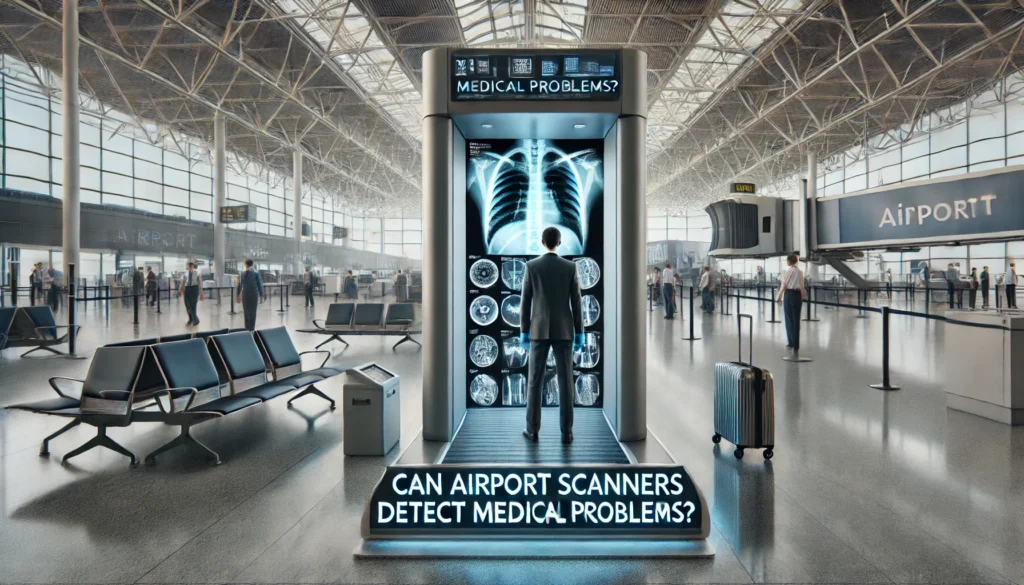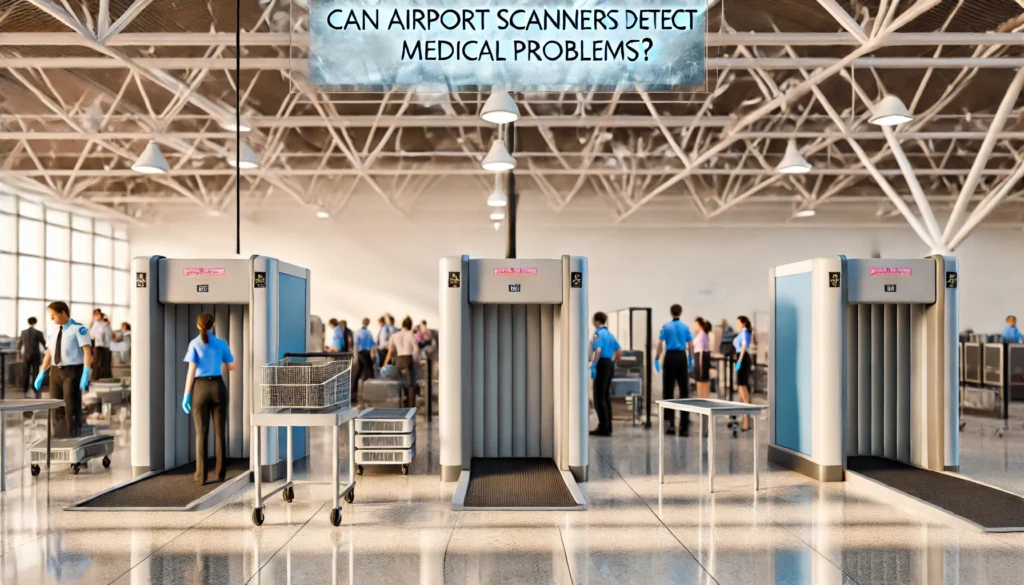Welcome to Wings Over Clouds! Today, I want to delve into a fascinating question: Can airport scanners detect medical problems? We often see these scanners as essential security tools, but could they also serve a medical purpose? Let’s explore this intriguing topic and uncover the possibilities.
The Basics of Airport Scanners
Airport scanners are omnipresent in modern travel. We walk through them, place our bags in them, and trust them to keep us safe. But what exactly can these scanners see? Airport scanners primarily use two types of technology: X-ray and millimeter-wave. Each serves a unique purpose in ensuring passenger safety and security.
Potential for Medical Detection
Accidental Discoveries
One of the most interesting aspects of airport scanners is their potential for accidental medical discoveries. While their primary function is to detect threats, there have been cases where they have spotted anomalies that led to medical diagnoses. For instance, metal implants, dense masses, and unusual objects within the body can sometimes show up on these scans.
X-ray Scanners and Health
X-ray scanners provide detailed images of the body’s internal structure. This detail can occasionally reveal medical issues. For example, a person might have a metal object inside their body that they weren’t aware of. While airport scanners are not designed for medical diagnostics, they have sometimes incidentally revealed tumors, bone fractures, and other internal anomalies.
Millimeter-Wave Scanners
Millimeter-wave scanners create detailed images by bouncing radio waves off the body. These scanners can detect objects hidden under clothing. Interestingly, they can sometimes highlight unusual shapes or densities that warrant further medical investigation. However, the primary goal remains security, not medical diagnosis.
Real-Life Incidents About Scanners Detect Medical Problems
There have been real-life incidents where airport scanners have inadvertently detected medical issues. These stories highlight the unintended benefits of this technology. One such case involved a traveler who had a suspicious mass detected during a routine security check. This mass turned out to be a tumor, and early detection allowed for successful treatment.
Case Studies
The Tumor Discovery
In one notable case, a woman passing through a millimeter-wave scanner had an anomaly detected near her chest area. The anomaly led to further medical examination, revealing a tumor that was still in its early stages. Thanks to the incidental detection by the airport scanner, she received timely medical intervention.
Hidden Metal Objects
Another incident involved a man with an unexplained pain in his abdomen. An airport X-ray scanner detected a foreign object inside his body. Further investigation revealed that it was a piece of metal that had been unknowingly ingested. This discovery prompted immediate medical attention, preventing potential complications.
Limitations of Airport Scanners
Not a Diagnostic Tool
While these stories are fascinating, it’s crucial to understand that airport scanners are not designed for medical diagnostics. Their primary function is to ensure safety by detecting threats. Any medical discoveries are purely incidental. Relying on airport scanners for medical checks would be inappropriate and ineffective.
Radiation Exposure
X-ray scanners expose individuals to small doses of ionizing radiation. While the exposure is minimal, repeated exposure could pose health risks. Therefore, using these scanners for routine medical screening is not advisable.
Lack of Specificity
Airport scanners are not designed to provide detailed medical images. They might show an anomaly, but they cannot diagnose what it is. Medical imaging equipment like MRI and CT scans offer far more detailed and specific information about the human body.
Potential Future Applications
Despite their limitations, the incidental medical discoveries made by airport scanners open up intriguing possibilities. Could future airport security technology integrate medical diagnostic capabilities? It’s an exciting thought.
Advanced Scanning Technology
Future advancements in scanning technology might lead to devices that can serve dual purposes. Imagine an airport scanner that not only ensures security but also performs a quick health check. This could revolutionize both security and healthcare.
Privacy and Ethical Concerns
Integrating medical diagnostics into airport security raises significant privacy and ethical concerns. Travelers might not want their medical information revealed during routine security checks. Balancing security, health benefits, and privacy will be a critical challenge.
The Role of AI in Medical Detection
Artificial Intelligence (AI) could play a significant role in enhancing the medical detection capabilities of airport scanners. AI algorithms can analyze scanner images for anomalies that human eyes might miss. This technology could potentially identify medical issues more accurately and promptly.
AI-Powered Analysis
AI could analyze the data from airport scanners in real time, flagging any potential medical issues for further investigation. This approach could lead to early detection of conditions that might otherwise go unnoticed.
Training and Implementation
For AI to be effective in this role, it requires extensive training in medical images. This process involves feeding the AI system thousands of images of various medical conditions. The goal is to teach the AI to recognize patterns and anomalies that indicate potential health problems.
Can Airport Scanners Detect Medical Problems “Final Thoughts”

So, can airport scanners detect medical problems? The answer is yes, but only incidentally. Their primary purpose is security, but they have occasionally identified medical issues by chance. While these instances are rare, they highlight an intriguing intersection of technology and health.
As we look to the future, the integration of advanced technology, including AI, could expand the capabilities of airport scanners. However, this evolution must be approached with caution, balancing the benefits of early medical detection with privacy and ethical considerations.
At Wings Over Clouds, we remain fascinated by the potential of aviation technology. The accidental medical discoveries by airport scanners remind us that technology often has unexpected benefits. As we continue to explore these possibilities, we remain committed to providing you with the latest insights into the world of aviation.
If you’re interested in more articles like this, feel free to explore our other posts on Wings Over Clouds. Let’s stay curious and keep exploring the skies and the technology that keeps us safe.

